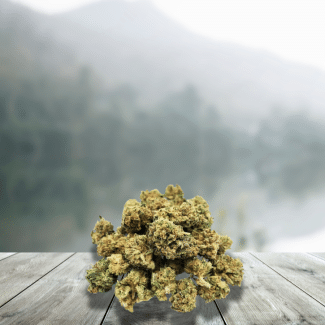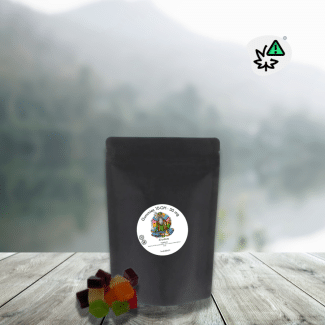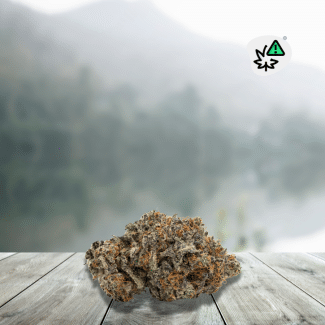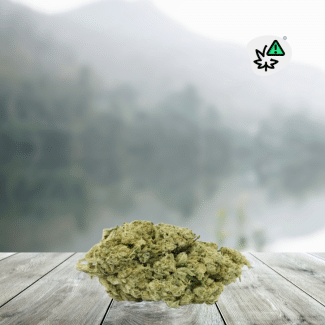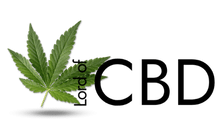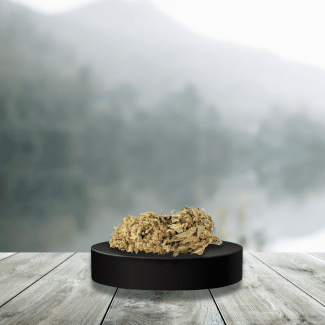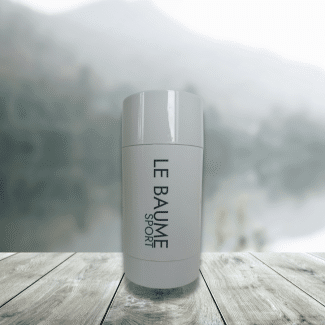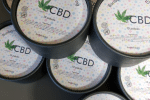
Gilles de la Tourette Syndrome is a complex neuropsychiatric disorder that is as intriguing as it can be confusing. If you or a loved one lives with this syndrome, you know how much it can impact daily life. Tics, whether motor or vocal, can occur at any time and cause considerable discomfort. However, there is growing curiosity around new approaches that can help to better cope with these symptoms. Among these, cannabidiol (CBD) is of particular interest. Numerous testimonies report its calming effects and its potential impact on various neurological disorders. You are probably wondering if CBD can really act on Tourette Syndrome, and how it would be possible to integrate it into your routine, while respecting French legislation. The objective here is to provide the most comprehensive insight possible on this subject, in order to support you in thinking and finding suitable solutions.
Understanding Gilles de la Tourette Syndrome
Gilles de la Tourette Syndrome, often abbreviated to “Tourette”, is classified as a neurodevelopmental disorder. The first symptoms generally appear during childhood, between 5 and 10 years old. It is characterized by motor and vocal tics which appear recurrently. Motor tics can include sudden movements, such as blinking, facial grimaces, shaking the shoulders, or jumping. Vocal tics can take the form of throat clearing, repetition of words or involuntary and sometimes inappropriate expressions.
A key element is the fluctuating intensity of tics: they can worsen with stress, fatigue or certain strong emotions, then ease in a calmer context. Affected individuals may also develop other associated disorders, such as obsessive-compulsive disorder (OCD) or attention deficit hyperactivity disorder (ADHD). This complexity sometimes makes the diagnosis difficult, and it may happen that the patient must consult several specialists (neurologists, psychiatrists, psychologists) before having a clear vision of their situation.
Despite popular belief, few people with Tourette's have compulsive use of bad words (coprolalia). This is a possible but not systematic symptom. The media have often highlighted this characteristic in a caricatured manner, fueling a certain stigma. In reality, the daily lives of people affected by this syndrome are much broader and varied. The challenge is to understand the full complexity of this disorder in order to better adapt to it.
Impact on quality of life
Living with tics that occur unexpectedly can be tiring and stressful, both physically and mentally. Sudden movements, uncontrolled sounds, or even the need to concentrate to suppress tics in public can generate a significant emotional charge. Some individuals report having to make a considerable effort to “contain” their tics in social or professional situations, and end up feeling great nervous fatigue at the end of the day.
This constant pressure sometimes has repercussions on self-confidence. It is not uncommon for fear of what others will look at to lead to social avoidance. Children risk being bullied at school, particularly when they do not receive the necessary support or understanding. This is why it is essential to develop strategies to better manage the symptoms, but also to support the person in their daily life.
Various conventional treatments exist to help regulate the intensity and frequency of tics. Certain neuroleptic medications may be prescribed, as well as behavioral or cognitive therapies (CBT). However, these approaches are not always fully satisfactory for everyone affected, whether due to side effects or variable effectiveness. It is in this context that certain alternatives, including CBD, are arousing legitimate interest.
Overview of CBD: what exactly is it?
Cannabidiol (CBD) is one of several chemical compounds found in the hemp plant (Cannabis sativa L.). Unlike its well-known cousin, tetrahydrocannabinol (THC), CBD does not have any significant psychotropic effects. In other words, it does not cause the “high” feeling that we often associate with recreational cannabis. In France, the law authorizes the sale of CBD products provided that the THC level is less than or equal to 0.3%. This is also the framework in which specialized brands, such as Lord Of CBD, work, which ensure they offer compliant and high-quality products.
CBD can be found in multiple forms. CBD oil is one of the most popular; it can be used sublingually (a few drops under the tongue) or added to dishes and drinks. CBD flowers are mostly used for infusions or vaporizations. There are also resins, herbal teas and many other variations. At Lord Of CBD, a complete range is available to satisfy varied needs: full spectrum oils, pet oils, resins, etc. Each product has its specificities in terms of concentration and method of administration, which allows use to be best adapted according to individual preferences and sensitivity.
How CBD acts on the body
The human body has a so-called “endocannabinoid” system, made up of receptors present in the brain and other parts of the body (CB1 and CB2, among others). This discovery highlighted a regulatory role: the endocannabinoid system participates in the management of mood, appetite, sleep, pain and even the immune response. Cannabidiol would therefore act by binding, more or less directly, to these receptors. It would have a modulating effect, which could help restore a balance in these physiological functions.
Several preliminary studies and testimonials suggest that CBD may help reduce anxiety, promote muscle relaxation, and improve sleep quality. These effects could be of particular interest to people with Tourette's, as stress and anxiety are among the factors that can make tics worse. When stress decreases, it is not uncommon to notice a reduction in the frequency or intensity of tics. Furthermore, CBD could have anti-inflammatory and neuroprotective properties, even if these hypotheses still need to be solidified by large-scale clinical trials.
The entourage effect is another often-mentioned concept. It refers to the fact that the different compounds of the hemp plant (cannabinoids, terpenes, flavonoids) act synergistically to maximize the potential benefits. So, a full-spectrum CBD oil, which contains a range of components, could offer a more holistic effect than pure CBD isolate. This explains why some users prefer full spectrum products, despite the presence of traces of THC which remain within the legal limit of 0.3% in France.
CBD and Gilles de la Tourette Syndrome: what does the research say?
The use of CBD for Tourette Syndrome is attracting more and more interest in the scientific community. Specific studies are still limited, but the first leads are encouraging. In the United States, some clinical trials have looked at the use of cannabinoids for various neurological disorders, including Tourette's. Several patients report a reduction in the frequency and severity of tics, as well as an improvement in their quality of life. However, there is still a lack of data to draw a definitive conclusion. It is important to keep in mind that Tourette Syndrome can vary greatly from person to person, and responses to treatments, including CBD, can also differ.
Regarding the scientific literature, we find work where CBD is associated with a reduction in anxiety, better stress control and a potentiating effect on the quality of sleep. All these parameters can indirectly impact the management of tics. Some neurologists believe that better emotional balance and restful sleep can provide favorable conditions for reducing symptomatic manifestations. However, one should also not cut corners too quickly: any perceived improvement may depend on the dosage, the type of CBD product used and other individual factors.
More advanced studies would be necessary to fully understand the exact mechanism of action of CBD in Tourette's. Part of the research also focuses on the potential role of THC, present at very low levels in legal products in France. It appears that in some cases the combination of CBD and small amounts of THC may have a beneficial effect on tics. But given the strict legal restrictions in France and the fact that not everyone tolerates THC in the same way, it is advisable to exercise caution and opt for products that comply with the regulations.
Key factors to consider before trying CBD
If you are considering introducing CBD into your routine to manage Tourette Syndrome, a few criteria deserve your attention:
- Product quality : Not all CBD products are created equal. It is crucial to find out about the origin of the hemp, the extraction methods, the presence of possible contaminants, etc. At Lord Of CBD, the selection of high-quality raw materials and attention to production standards aims to ensure purity and legal compliance.
- Product type : You can choose between CBD oil, flowers, resins, infusions, and even mixtures for shisha. Oil often remains the privileged choice for rapid absorption by sublingual route, while the infusion can suit those who like to take their time and savor a relaxing herbal tea. The resins and hash CBD , on the other hand, are popular for their concentration of cannabinoids and their more traditional consumption mode.
- CBD content : Concentrations vary (5%, 10%, 20%, or even more). A beginner will often start with a modest rate to assess tolerance, then can gradually adjust based on the effects felt. It is often recommended to start low and increase slowly, to minimize possible side effects.
- Medical consultation : Even if CBD is over-the-counter, it is prudent to discuss your approach with a healthcare professional, especially if you are already undergoing treatment. Certain medications may interact with CBD at the level of hepatic metabolism. Medical advice can help you avoid potential inconveniences and better target the dosage.
- Regularity : As is the case with many supplements, one-off use may be less effective than regular use. Some users report that taking CBD daily brings them the most benefits, especially in the long term.
User testimonials and feelings
Many people today share their experiences on forums or social networks, reporting an improvement in their Tourette's symptoms thanks to CBD. They often describe a reduction in feelings of internal tension, this feeling of “pushing” before the triggering of a tic. Some also note a better ability to relax and more restful sleep. Parents of children with Tourette's sometimes report calming down in the evening, a time when fatigue and relaxation can amplify the tics.
Of course, testimonials are subjective and it is always possible that a placebo effect, or other factors (psychotherapy, lifestyle changes, etc.), contribute to the improvement. However, this feedback has the merit of arousing the interest of health professionals and scientific research. They show that the potential of CBD goes beyond a simple fad and deserves more attention.
Global approach: beyond CBD
It is important to consider CBD as one element among others in the management of Gilles de la Tourette Syndrome. A comprehensive approach will often include:
- Regular medical monitoring : Appointments with a neurologist or psychiatrist remain essential to adjust treatment, monitor the evolution of symptoms and treat possible comorbidities such as OCD or ADHD.
- Cognitive and behavioral therapies : These aim to learn strategies for managing tics, to better control one's attention and to adopt relaxation techniques.
- A healthy lifestyle : Stress and fatigue are two major aggravating factors. Finding a balance between quality sleep, balanced diet and appropriate physical activities can help considerably.
- Psychological and social support : Support groups and associations specializing in Tourette's allow you to interact with people who experience similar realities. This can reduce feelings of isolation and build self-confidence.
In such a context, CBD can be an additional ally. By having a potential anxiolytic effect and promoting relaxation, it can help reduce mental pressure, which can, in some cases, lead to a reduction in the frequency or intensity of tics.
Choosing the right CBD product for Tourette’s
When the decision is made to experiment with CBD, several options are available to you at Lord Of CBD:
- Full spectrum oils : They contain a range of cannabinoids, terpenes and flavonoids, including traces of THC (within the legal limit of 0.3%). Many consumers believe that this synergy enhances overall efficiency.
- Broad spectrum or isolate oils : For those who wish to avoid THC completely, there are broad spectrum oils or oils based on pure CBD isolate.
- CBD flowers : They can be infused, vaporized or used in culinary recipes. However, it is important to respect the regulations in force and avoid smoking these flowers, as combustion is not recommended for your health.
- Resins and hash : Offered in different concentrations, they are often sought after for their texture and their traditional method of consumption.
- Herbal teas and shisha mixes : For fans of infusions or shisha, there are aromatic CBD preparations that allow you to enjoy a moment of relaxation at the end of the day.
The choice will mainly depend on your sensitivity, your preferences and your objectives. If you want a quick and controlled effect, sublingual oil is generally a good compromise. If you enjoy the ritual and calm aspect of an infusion, herbal teas may suit you better. In any case, be sure to buy a product analyzed in a laboratory, with a certificate of conformity and clear indications on the cannabinoid concentration.
Dosage and precautions for use
CBD dosage is not an exact science, as each organism reacts differently. Certain factors come into play: body weight, metabolism, personal sensitivity and severity of symptoms. It is often recommended to start with a small dose (for example 10 to 20 mg of CBD per day) and gradually increase it until you feel a satisfactory effect. You can divide the intake into several times of the day, especially if you feel a peak of stress at a certain time.
It is also wise to keep a logbook to monitor the evolution of your symptoms, the dosage used and your feelings. This makes adjustment easier and allows you to detect possible side effects. The side effects of CBD are generally mild (dry mouth feeling, drowsiness, mild headache), but it's important not to neglect what's happening in your body.
Also don't forget to talk to a healthcare professional, especially if you are already taking medication. Certain molecules can interact with CBD. For example, certain antidepressants, anxiolytics or anticonvulsants require special attention. If possible, find a doctor or pharmacist who is open to discussing CBD. They will be able to advise you better or direct you to a specialist.
Legality of CBD in France and Europe
France authorizes the sale of hemp products with a THC content of no more than 0.3%. This concerns flowers, oils and other derivatives, provided that the variety of hemp used is also listed in the European catalog. The controls are strict, and this is why all serious brands offer laboratory analyzes attesting to the conformity of their products.
For customers living elsewhere in Europe, regulations may vary slightly from country to country, although most follow fairly similar guidelines. At Lord Of CBD, delivery is free throughout Europe from €39. It is therefore possible to receive your products, provided you check compatibility with local legislation. With the growing popularity of CBD, there is a gradual harmonization of rules within the European Union, although some differences still remain.
Other cannabinoids: THV-N10 and CBNO
Beyond the CBD, there are other cannabinoids that draw attention, such as THV-N10 and CBNO. These are less known to the general public, but they begin to appear in certain specialized products. The THV-N10 , sometimes considered to be psychoactive, is the subject of research to determine its possible advantages and its methods of action. The CBNO, on the other hand, is another rare cannabinoid whose potential properties are studied. Some consumers report that it brings deep relaxation and more marked effects on sleep. It is still too early to clearly decide on their usefulness in the management of Tourette, but the current trend suggests that we are heading for a more complete exploration of all the molecules of the hemp plant.
The important thing to remember is that each cannabinoid has a unique profile. The combinations (CBD, THC, CBG, CBN, THV-N10, CBNO, etc.) give rise to different possible effects, hence the interest in what is called the entourage effect. On the other hand, anyone wishing to venture beyond CBD should do so with caution, inform themselves about the legislation in force and, if possible, speak with a health professional familiar with this area.
Integrate CBD into your daily routine
For many, the difficulty lies in establishing a stable routine. Here are some practical tips:
- Identify the right time : Some people prefer to take CBD oil in the morning, to approach the day more calmly. Others opt for the evening, before bed, to promote relaxation and sleep. Needs may vary if you want to target tics that occur more often during the day or if you want overall calming.
- Combine with relaxation techniques : CBD can pair wonderfully with meditation, yoga or deep breathing sessions. This creates a climate conducive to reducing anxiety, which can influence the severity of tics.
- Keep a written record : Write down for a few weeks your feelings, the dosage and the type of product used. This history will help you adapt the routine optimally and share clear information with your healthcare professional.
- Listen to your body : Needs change over time. What works one month may require adjustments the next month, particularly if your daily life changes (new stress, seasonal changes, etc.).
The words of health professionals
Even if CBD benefits from growing popularity, the opinion of health professionals varies. Some are very open to the idea of using it in a global approach, and recognize the value of positive feedback. Others prefer to wait for more robust scientific evidence. This caution is understandable, because CBD, although available without a prescription, remains an active compound that can interact with existing treatments.
However, more and more doctors, neurologists and psychiatrists are learning about the therapeutic use of cannabinoids. It is not uncommon for some countries to offer official medical cannabis protocols for various disorders, including Tourette's. In France, this development is slower, but research is progressing and public pressure for wider access to medical cannabis is being felt. In this context, sharing your concerns and hopes with a trusted professional remains the best approach.
Frequently Asked Questions (FAQ)
- Can CBD cure Tourette Syndrome?
No, CBD is not a definitive cure. It could, on the other hand, help alleviate certain symptoms, notably by reducing stress and anxiety. - Will CBD make me stoned or addicted?
Unlike THC, CBD does not cause a noticeable high and is not known to cause physical dependence. Of course, it is important to respect responsible dosages. - Which form of CBD should you choose for an optimal effect on tics?
There is no universal answer. Sublingual oil offers rapid absorption, but some people prefer infusions or resins. The main thing is to choose a quality product and adjust the dosage according to your feelings. - Can CBD be combined with other medicinal treatments?
In the majority of cases, yes, but it is strongly recommended to speak to a doctor. CBD may interact with the metabolism of certain medications. - What is the THC level authorized in France?
The THC level must be less than or equal to 0.3% in finished products. This rule applies to oils, flowers, resins and other legally marketed derivatives. - What are the possible side effects?
The most common are dry mouth, drowsiness, possible drop in blood pressure or mild headaches. Most of these effects disappear by adjusting the dose.
The importance of personalized support
Each person with Gilles de la Tourette Syndrome has a different life course, metabolism and expectations. Conventional treatments, behavioral therapies, lifestyle and the use of CBD form a set of tools that you can tailor to your needs. The main thing is to listen to your body, your feelings and never hesitate to call a professional. In certain cases, teamwork (doctor, therapist, sports coach, etc.) proves to be the best strategy to significantly improve quality of life.
CBD, due to its potentially beneficial relaxing properties, can provide a respite from a sometimes trying daily life. It still needs to be properly integrated, with a global vision of health. Stress management, maintaining quality sleep and emotional regulation remain fundamental pillars. CBD does not replace them but can support them, depending on each person's profile.
Where to find quality CBD products
The boom in the CBD market in France has led to the appearance of many shops, physical or online. It is sometimes difficult to navigate. This is why it is recommended to trust recognized actors, who highlight transparency, quality and compliance with standards. In Lord of CBD , the products are rigorously selected and controlled, in order to guarantee both their potential efficiency and their legal compliance (THC rate ≤ 0.3 %).
The physical stores based in Paris 16 and Coignières (78) offer customers the opportunity to discover the different ranges and benefit from personalized advice. The on-site team is trained to answer questions and guide you towards the most suitable products: cannabidiol oils, flowers, resins, herbal teas or even shisha mixes. If you prefer to order online, the lordofcbd.fr site is designed to facilitate navigation and purchasing. Delivery is free from €39, everywhere in Europe, to make access to CBD simpler and affordable.
A promising future around CBD and neurological disorders
Tourette Syndrome is one of the many neurological disorders for which CBD is attracting growing interest. Users report an effect on stress, anxiety, quality of sleep, all factors which play a role in the expression of tics. Of course, research still needs to progress, and CBD cannot replace appropriate medical monitoring. Nevertheless, it represents an encouraging avenue, particularly for those who struggle to find satisfaction in traditional treatments or who wish to complete their therapeutic protocol.
The key remains information. Better understanding Tourette Syndrome, the mechanisms of action of CBD and the regulations in force can help you make an informed choice. If you decide to try CBD, be sure to opt for a quality product, whose traceability and cannabinoid concentration are clearly indicated. Take the time to explore different forms (oil, infusion, resin, etc.) to find the one that best suits your habits and your feelings. And above all, remember that every health approach benefits from being personalized. Discussion with a professional remains a valuable asset, allowing you to benefit from tailor-made support and to ensure that your choices are compatible with your current treatments.
Ultimately, the use of CBD in the context of Gilles de la Tourette Syndrome offers a new perspective, both for stress management and for mental calming. Even if it is not a magic solution, more and more people are reporting a notable improvement in their comfort of life. It is worth looking into the matter and assessing whether this path may be suitable for you, taking into account your specificities. Scientific advances in the coming years will undoubtedly provide more precise answers on the effectiveness, modalities and possible contraindications of CBD for Gilles de la Tourette Syndrome. Until then, you have the opportunity to inform yourself, test, adjust and, who knows, discover valuable help to live better with tics on a daily basis.

